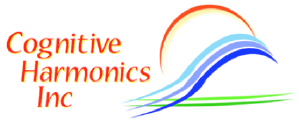Note: This article is being republished from an early date about one of our BEST friends and innovators of brain injury tools, Kathy Moeller. Check out Cognitive Harmonics and enjoy!
Today’s hero is an innovator and forward-thinker who sees a bright technological future for not only individuals with brain injury, but for an entire community of people who could use extra support for their life and work endeavors.
In fact, she thinks we’ve really only just begun.
Meet Kathy Moeller, founder of Cognitive Harmonics, Inc., an organization that offers robust life and work management systems specifically designed for people with brain injury. The BRAIN BOOK ©System and My Bionic Brain © is a specially customized life/manager/day planner that provides tools
and resources to meet the needs of individuals with brain injury. Both of these entities are considered learning systems that teaches specific skills that compensate for issues that are most commonly involved in brain injury. These skills and tools have a real world, real life, day-to-day application that creates
confidence, empowerment and success.
According to Moeller, in essence, her systems can be seen as a cognitive prosthetic. Whether the device is electronic or on paper, it functions like an external memory, customizable to each person’s experience
and needs.
Moeller created the programs after her own brain injury 24 years ago in a serious car accident.
Moeller’s vehicle collided head on with a bus. Moeller obtained a traumatic brain injury, broken bones and other injuries as a result. When she emerged from a coma, Moeller was instantly met with challenges.
“I lost my reading ability, I couldn’t dress myself and I was angry and agitated,” shares Moeller. “I was horribly confused and disoriented.”
After her hospitalization, Moeller went to a brain injury rehabilitation center in Concord, California, where she received five months of extensive residential care and support, 24/7. Nine more months followed of outpatient treatment. Post-treatment, Moeller, a marketing executive from New York prior
to her injury, decided to return to work.
“I assumed I could go back to work. I started back as a receptionist. That didn’t work very well,” says Moeller.
More jobs followed as well as more increasing frustration. While in the midst of her journey, she spent one year putting a personal brain book together to help her balance, manage and support her work and personal life.
“It was a like a day timer on steroids,” says Moeller. “It had memory notes, recommendations and problem identification, like noise and light. The brain book helped to clarify and verify my experience and gave supportive tools to help.
Moeller shared her brain book with various organizations; the system was met with enthusiasm, intrigue and huge support. Moeller’s peers reached out to her to help them create their own brain books, using her model. Her methods have been shared with hundreds of people and has been formally taught since
the early 1990’s.
In the mid-nineties, Moeller formed Cognitive Harmonics, Inc., to make her system available to those who needed support; in 2010, along several key collaborative partners, her system is now a robust and sophisticated iPad app.
Through books, software and the app, Moeller’s products maintain a similar and important thread—all are individually driven and applicable to each person’s unique and/or complex needs.
Moeller is also a proponent of the peer support network in using the products. She’s noticed that people who are using the tools are calling one another peer for assistance or support. Moeller sees this kind of connection amongst peers instrumental in creating success and empowerment.
Moeller’s products have been used by vocational rehabilitation centers in multiple states along with a number of VA groups and centers. It’s also available to individuals in the private sector. As Moeller presses on with growing the products technologically and creating even more innovation, she is finding
that the system is applicable to the autism community as well as other conditions.
To Moeller, it’s just the start.
“With technology improving exponentially, we have in all of our futures the ability to solve unsolvable problems,” explains Moeller. “It is within our grasp; we just haven’t put all of the pieces together yet. We need to keep pushing forward, based on what individuals need and want.
Anything is possible. It is going to happen.”

